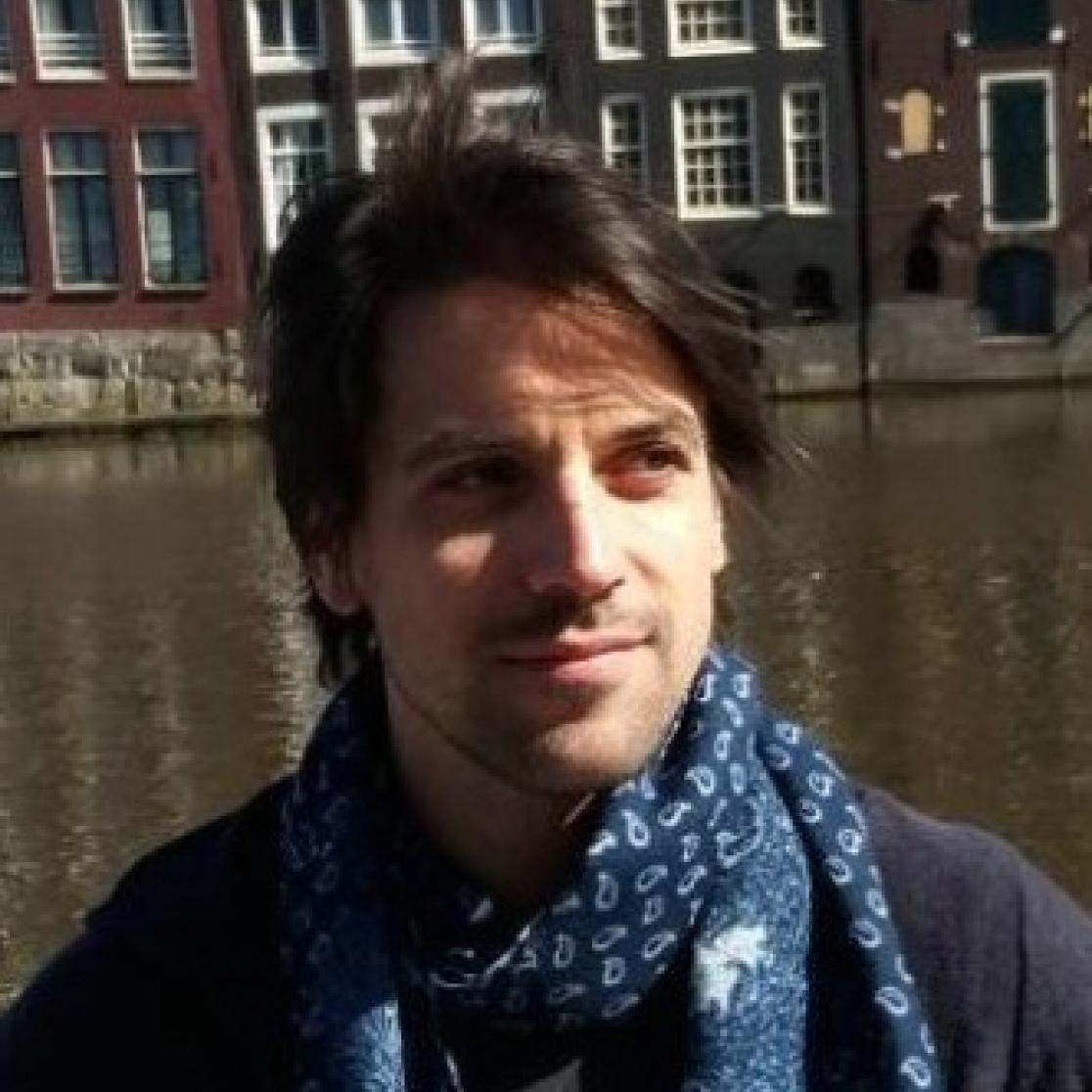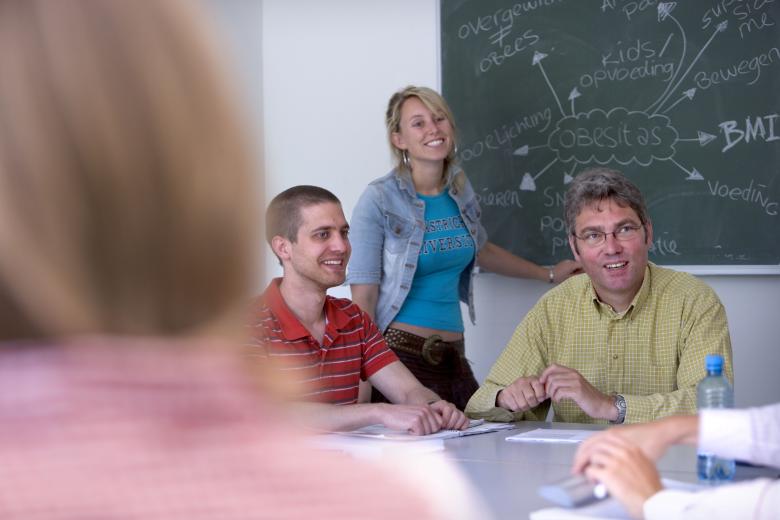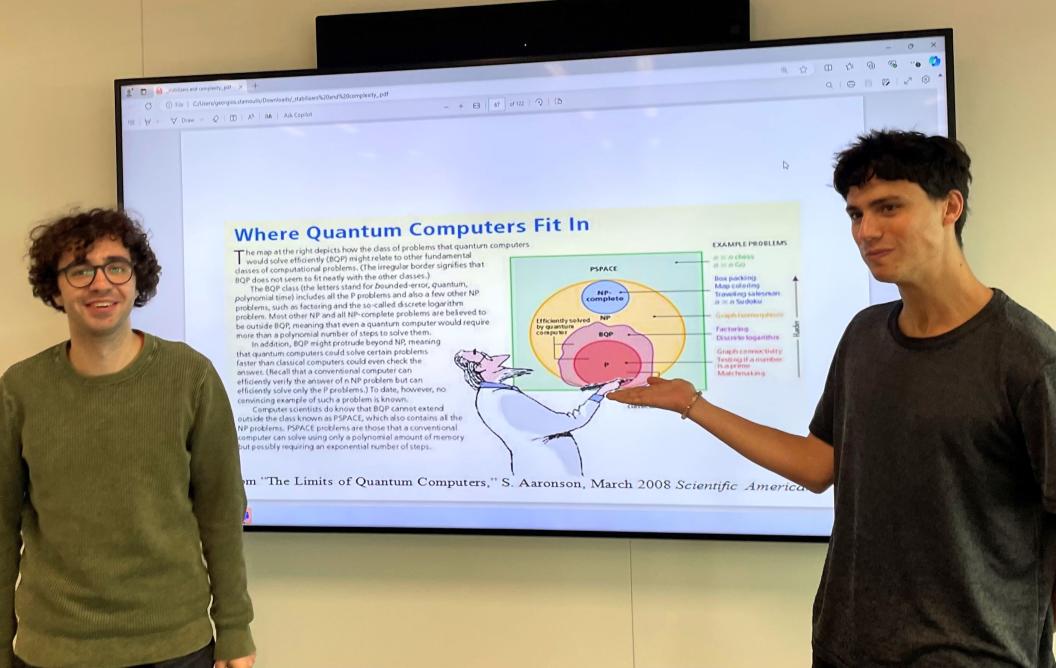Maastricht's Education on Quantum Computing
“They all love it,” says Georgios Stamoulis from DACS, throwing his arms up in the air. He’s referring to his students enrolled in the Quantum Algorithms course of the master’s specialisation in Quantum Computing. He is about to start the final lecture of this course.
Georgios discusses physicist Werner Heisenberg, one of the pioneers of quantum mechanics. He devised an alternative mathematical description of the quantum world, which, over a century later, proves ideal for developing quantum algorithms. With that, the physics part of the lecture concludes, and Georgios delves deeply into the mathematics.
“The mathematics isn’t that difficult,” says Daniel Marcon, a master’s student in Artificial Intelligence. “During my bachelor’s programme, I studied linear algebra but then did not engage with it for a few years. So, I had to dive back into it.” His fellow student, Andy Caen, agrees: “At first glance, the mathematics seems quite daunting. Concepts like entanglement and superposition sound strange and hard to get your head around. However, during lessons like these, you learn the mathematics behind the theory, which puts everything into perspective—you understand what is and is not possible with quantum computing.”
Surprise
Today, Georgios has a shocking revelation planned for his students. He demonstrates how to mathematically determine whether a quantum computer can perform a calculation more efficiently than a classical computer. It turns out that the phenomenon of entanglement is not always advantageous. A classical computer can often simulate quantum calculations just as effectively as a real quantum computer can perform them.
Quantum computers are bringing about the greatest technological breakthrough of this century, or so the promise goes. However, what is quantum, and what are quantum computers? What are the possibilities for using them? In addition, how does one programme a quantum computer? This collection of four stories explores the answers to these questions. The focus is primarily on the University of Maastricht's specialty, Quantum Computing, which entails programming quantum computers.
- What is Quantum?
- What is Quantum Computing?
- Quantum Computing Research
- Education on Quantum Computing
Daniel Marcon (left) and Andy Caen during their Quantum Computing Class
“It’s quite surprising to see that using entanglement does not always lead to an advantage; I had not expected that. For me, this is one of the reasons to pursue this specialisation. I want to know and understand what benefits this new way of computing can offer,” says Andy. Daniel adds, “That is the fundamental issue with quantum computing; the science behind it is still in its infancy. But even if we fail in building a quantum computer, the research still provides a completely new approach to using computers, as you can simulate quantum calculations on a traditional computer.”
Specialisation
Georgios explains the reasons why UM offers this specialisation as part of the master's programmes in Artificial Intelligence and Data Science for Decision Making: “From a mathematical perspective, it’s a very interesting topic; it contains all the ingredients that will influence how we think about computing. It’s essential for students to immerse themselves in this subject. In short, anyone teaching computer science must also teach quantum computing.”
For now, Daniel is focusing on topics such as artificial intelligence. He is taking a few courses from the specialisation as electives. Andy, on the other hand, wants to pursue the subject further. “I’m looking forward to my internship at Orange QS in Delft, where they work on software for testing quantum chips.”
The first experiences with the specialisation, which began last April, have been positive: Georgios: “The initial courses have attracted more students than expected. With the first cohort, I had to test the waters to see hon ow complex I could make the lessons. I believe that with the next cohort, I can challenge them further by introducing some more difficult topics.”

Georgios Stamoulis
Finally, do the students really love quantum computing, as Georgios claimed at the beginning of his lecture? “Absolutely!” says Daniel. “I’m trying to persuade other students to take the courses as well.” Andy adds, “I recommend the specialisation to anyone who wants to understand how quantum computing works.”
The National Quantum Course
Want to know more about quantum computers? The National Quantum Course is a free online programme that introduces you to the world of quantum mechanics and quantum computing in an accessible manner. Follow lessons from Dutch experts in the field of quantum, including Jacco de Vries from Maastricht University (for now, the course is in Dutch only).
Also read
-
A strong education network for Brabant and Limburg: better alignment, less dropout
On November 24, 2025, secondary schools (VO) and higher education institutions (HO) in Brabant and Limburg will sign up for the Education Network South Netherlands: one VO-HO network that will improve the flow of students to further education and reduce dropout rates.
-
AMIBM hosts the final Realise-Bio conference
The Aachen Maastricht Institute of Biobased Materials (AMIBM ) hosted last week the third and final Realise-Bio annual conference , bringing together the Dutch and German bioeconomy ecosystems at the Brightlands Chemelot Campus .
-
Teacher Information Points at UM
UM faculties now host Teacher Information Points (TIPs) that offer local, “just-in-time” and on-demand support for teaching staff. The aim is simple: to provide help that is closely connected to day-to-day teaching practice.
